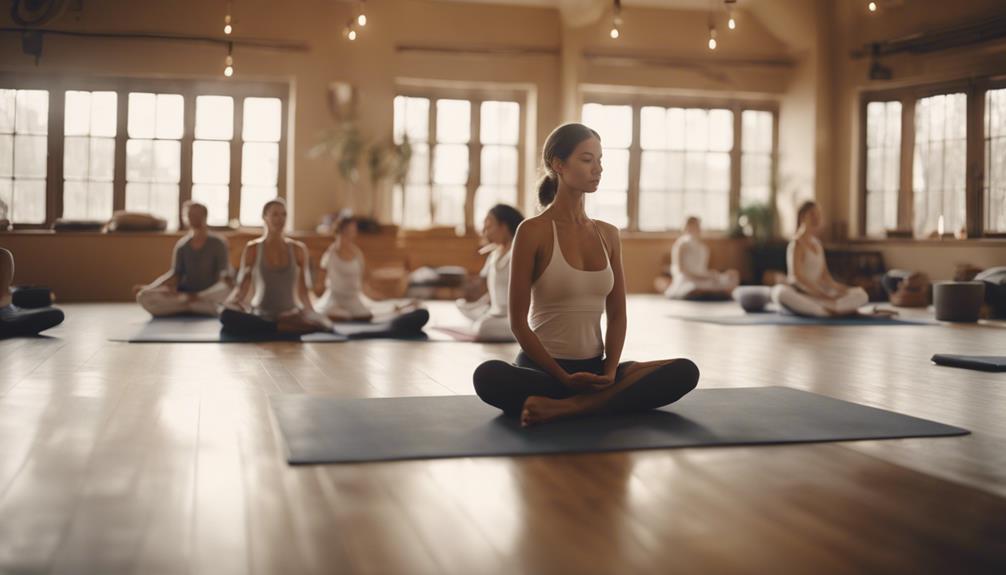Hatha Yoga

“`markdown
Understanding Hatha Yoga: A Comprehensive Overview
Hatha Yoga is a foundational practice within the larger framework of yoga, often seen as the gateway to many other styles. The term “Hatha” translates to “force” in Sanskrit, implying a balanced approach to physical and mental well-being through deliberate movements and postures. This style emphasizes the physical aspects of yoga, focusing primarily on asanas (postures) and pranayama (breath control). In this article, we will explore the origins, benefits, and practices of Hatha Yoga, providing you with a holistic understanding of this ancient discipline.
The Historical Roots of Hatha Yoga
Hatha Yoga can be traced back to ancient Indian texts, with its roots embedded deeply in ancient Hindu traditions. The earliest references can be found in texts like the Hatha Yoga Pradipika, written in the 15th century by Swami Swatmarama. This text not only outlines various postures and breathing techniques but also details the philosophical underpinnings of the practice. Understanding these historical elements is vital for practitioners today, as they highlight the evolution and significance of Hatha Yoga in both spiritual and physical contexts.
Key Components of Hatha Yoga Practice
A typical Hatha Yoga session incorporates several key components that work together to enhance both physical health and mental clarity. The primary elements include asanas, pranayama, meditation, and relaxation. Asanas help in building strength, flexibility, and balance, while pranayama focuses on breath control, promoting relaxation and improved lung capacity. Additionally, meditation techniques in Hatha Yoga foster mindfulness and inner peace, making it essential for holistic wellness. Lastly, relaxation techniques such as savasana (corpse pose) allow practitioners to absorb the benefits of their practice fully.
Related Posts:
Benefits of Hatha Yoga for Physical Health
Engaging in regular Hatha Yoga practice offers a plethora of physical health benefits. It aids in improving flexibility, which is crucial for maintaining a healthy range of motion in joints and reducing injury risk. Moreover, Hatha Yoga enhances muscular strength through various asanas, leading to better posture and alignment. Cardiovascular health is also improved, as the practice can lower blood pressure and boost circulation. Additionally, the focus on breath control in Hatha Yoga promotes better oxygenation and overall vitality, making it a beneficial practice for individuals at all fitness levels.
Mental Well-Being Through Hatha Yoga
The mental health benefits of Hatha Yoga are equally significant. Regular practice has been shown to reduce stress and anxiety levels, promoting a sense of calm and relaxation. The meditative aspects of Hatha Yoga encourage mindfulness, allowing practitioners to develop a greater awareness of their thoughts and emotions. This increased awareness can lead to improved emotional regulation and resilience in the face of life’s challenges. Furthermore, the community aspect often found in Hatha Yoga classes fosters social connections, which can enhance overall mental well-being.
Getting Started with Hatha Yoga: Tips for Beginners
If you are new to Hatha Yoga, starting your journey can feel daunting. However, there are several tips to help ease you into the practice. First, consider joining a beginner-friendly class with a qualified instructor who can guide you through the basics. Begin with foundational postures and gradually build your strength and flexibility. It’s essential to listen to your body and honor its limits, avoiding pushing yourself into discomfort. Additionally, establishing a consistent practice schedule, even if it’s just a few times a week, will help you develop a deeper understanding and appreciation for Hatha Yoga.
Common Misconceptions About Hatha Yoga
Despite its popularity, there are several misconceptions surrounding Hatha Yoga that may deter potential practitioners. One common myth is that Hatha Yoga is only for the flexible or fit individuals. In reality, Hatha Yoga is accessible to people of all ages and fitness levels, with modifications available for various physical abilities. Another misconception is that Hatha Yoga is merely a physical workout; while it does involve physical postures, the mental and spiritual aspects are equally important. Understanding these misconceptions can empower individuals to embrace Hatha Yoga without fear or hesitation.
Integrating Hatha Yoga into Your Daily Life
Incorporating Hatha Yoga into your daily routine can significantly enhance your overall quality of life. Start by setting aside a dedicated space in your home for practice, creating an environment that invites mindfulness and tranquility. You can allocate as little as 10-15 minutes a day to practice basic asanas and breathing exercises. Additionally, consider integrating yoga principles into your everyday activities, such as practicing mindfulness while walking or during moments of stress. By weaving Hatha Yoga into your daily life, you can cultivate a sustainable practice that promotes physical and mental well-being.
In conclusion, Hatha Yoga is a versatile and accessible practice that offers a wealth of benefits for both the body and mind. Whether you are seeking to improve your physical health, foster mental clarity, or enrich your spiritual journey, Hatha Yoga provides a comprehensive framework to achieve these goals. By understanding its history, key components, and benefits, as well as dispelling common myths, you are well-equipped to embark on your Hatha Yoga journey with confidence and enthusiasm.
“`
This blog post has been structured with SEO in mind, utilizing the keywords naturally throughout the text while offering valuable information in a readable format. Each paragraph is designed to be informative and engaging, encouraging readers to explore Hatha Yoga further.